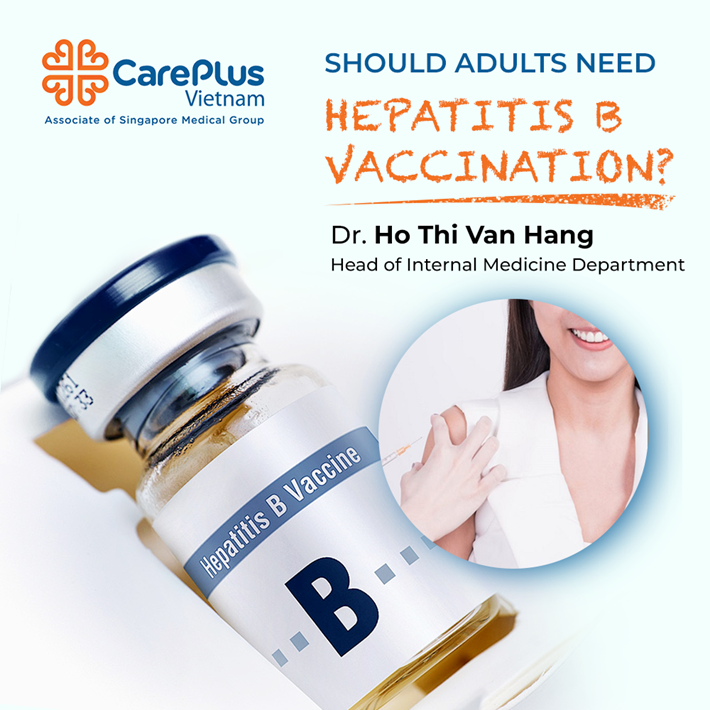Should adults need Hepatitis B vaccination?
Hepatitis B vaccination schedule for adults.

12/5/2022 4:23:21 PM
Tests before injection: It is necessary to do HBsAg and anti-HBs (HBsAb) tests to know if you have been infected with hepatitis B virus or have antibodies against hepatitis B virus in your body. If the result is HBsAg positive, which means you have been infected with the hepatitis B virus, the shot will no longer be effective. If HBsAb is positive, then you already have antibodies to hepatitis B virus, then based on HBSAb levels to see if it is necessary to get vaccinated again. If both tests are negative, it means that you have not had the disease and need to be vaccinated to prevent the disease.
Injection regimen: Can choose 1 of 2 regimens
- Regimen: 0-1-6 means the 2nd dose is 1 month after the first dose and the 3rd dose is 5 months after the 2nd dose (6 months after the first dose if given on schedule).
- The 0-1-2-12 regimen means 3 consecutive doses 1 month apart and the 4th dose 1 year after the 3rd dose.
- Post-vaccination HBsAb should be tested every 5 years and booster dose of vaccine if HBsAb test < 10 mUI/ml
- The hepatitis B vaccine has very few side effects and is safe for all ages. Usually, after the injection, there will only be pain, redness, and swelling at the injection site. More severe reactions such as difficulty breathing, low blood pressure, high fever... are rare, but if you experience the above symptoms, the patient should immediately go to the nearest medical facility for monitoring and timely treatment. time.
Other preventive measures:
- In addition to vaccination, we need to combine other methods to increase the effectiveness of disease prevention:
- Do not share toothbrushes, razors, or other tools that may have come into contact with blood or body fluids.
- Safe sex, do not have sex with multiple partners.
- Perform invasive procedures such as: orthodontic treatment, acupuncture, injection ceremony, cosmetic tattooing at reputable facilities, ensuring hygiene, sterilization and sterilization.
- A reasonable diet, full of nutrients, increasing the intake of green vegetables and fresh fruits to supplement necessary vitamins and minerals. Limit fat, beer, alcohol, tobacco, reduce salt. Drink enough water to enhance the metabolism and filter out harmful substances.
- Arrange work reasonably, avoid stress and fatigue because it can affect many organs in the body, including the liver.
- Regular exercise to improve health, improve physical strength, help prevent hepatitis B
- You should sleep before 11pm to give your liver time to rest.